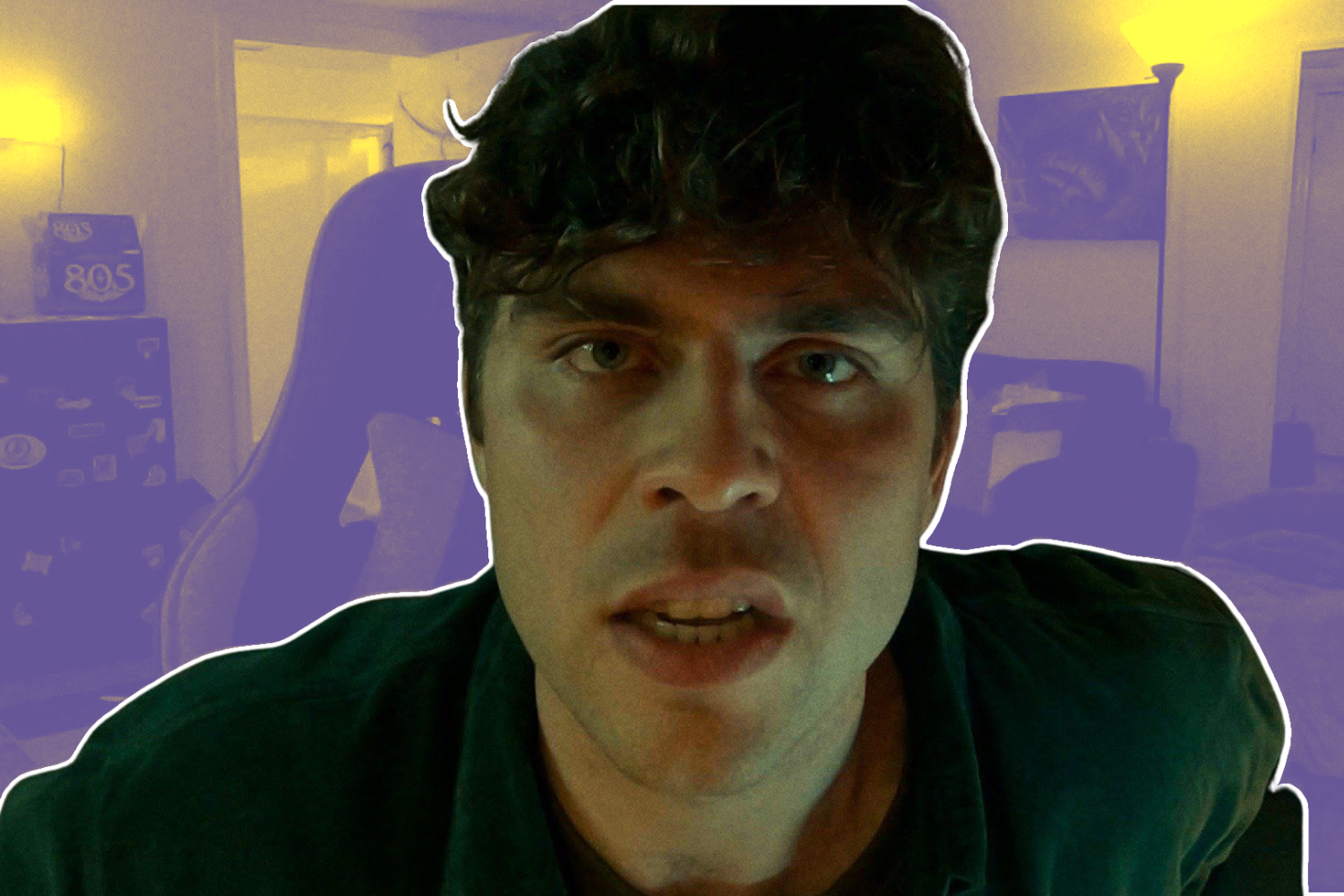Editorials
‘Low Life’ Is a Blood-Soaked Cautionary Tale
December 29th, 2022 | By Akos Peterbencze

There’s a good chance that Tyler Michael James‘s feature debut, Low Life, will end up in the wasteland of forgotten movies. It’s a shame since the film is the kind of first-attempt low-budget thriller that has a crystal clear idea about what it wants to be and a laid-out plan about how to get there. The journey it takes us on involves pedophiles, self-serving vigilantes, and murder — with a poignant message about self-identity and trauma.
The plot follows Benny Jansen (Wes Dunlap), an overeager and obnoxious dude on a mission to bait and trap men that pursue underage girls online to have sex with. He’s got a Youtube channel called Creep Dunk, where he posts videos about exposing sexual predators. It’s a niche with a decent following that earned him moderate internet fame. He’s got the tech gear, the lingo, and a weird — somewhat alarming — obsession that fuels him on this newly found life quest.
Does he actually help the police bring these potential perpetrators forward to be judged for their actions before the law? The local sheriff doesn’t think so. In fact, she urges Jansen in a public statement to stop this “vigilante” behavior. She claims that most of the cases he’s involved in can’t be sufficiently prosecuted because his chat logs and videos don’t meet evidence guidelines. Simply put: he offers more harm than help.
Jansen doesn’t care, though. He blindly believes that what he does is for the greater good and that the police don’t know what side they’re playing for. His intention to stop these deviant freaks seems noble and ballsy, but something about his determination feels off. What’s behind his justice-seeking urge? What drives him so adamantly that he’s willing to risk his own safety to confront these potentially violent perverts? We’ll find out soon enough as Jansen invites his current target — Jason (Lucas Neff), the father of an underage girl whose girlfriend tipped him off — into his own home to make him casually confess to his crimes.
That’s when the movie drifts into dangerous territory and begins building an unsettling suspense that’s slowly brewing under the surface. We know what he is playing at, but his prey doesn’t — and it’s only a matter of time until Jansen’s personal hell breaks loose.
However, there’s a crucial scene before all this goes down, which puts everything into perspective. Early on, Jansen visits his former high school to play some basketball with his pals. On his way to the court, he steps into a classroom where he stares at a bunch of old articles framed on the wall about his success as a high-school basketball player. He begins to reminisce about the good ole days for a moment.
Then we cut to him putting on his jersey and going hard on the court. He’s trash-talking, fouling, and picking on the other players. He acts like a bully who simply can’t keep his ego in check even in such a friendly game. Clearly, when he used to play competitively, Jansen was intense, focused, and determined. It was his identity. That’s who he really was before suffering a mysterious trauma that didn’t only derail his professional career but his entire life. And even though years went by, he’s never fully recovered and still suffers from the long-lasting effect of an identity crisis.
In the very next scene, we see Jansen shooting a gun on an empty field. He acts out scenarios in which he would confront sexual predators who resist admitting their intentions and crimes. He talks aggressively and dominantly like he did moments ago during the game. It’s the same intense and malicious energy, but this time — instead of fouling someone — he envisions killing a man.
Jansen believes that being an online vigilante is his next calling — since his sports career failed — but it’s clearly just a substitute for being good at something. His desire to be recognized and acknowledged by the public chases him to the verge of a mental breakdown. What he does is selfish, toxic, and self-serving. There’s no sense of justice that drives him to expose these sexual predators — it’s his ego. He wants fame, compliments, and praise for being a self-selected hero. His need for being worthy of approval blindsides him, and he fails to recognize the potential repercussions of his own actions. By confronting Jason, he goes too far and puts not only his life at risk but of others he loves and cares about.
Low Life smartly points out the toxicity and horror of the modern age. That our desperate longing for some sort of approval — thanks, in large part, to social media — became a poisonous and compulsive driving force that pushes us to break boundaries better left standing. How easy it is to attain the technical comprehension and tools for creating such opportunities is terrifying. People no longer need to be skilled, talented, or even convincing to sell themselves as experts at something they clearly have no or little knowledge of. As upsetting and wrong as that may sound, it’s something we have to accept and live with in this era.
Yet the very real problem that comes with today’s online environment, though, is the possibility that individuals like Jansen — suffering from mental or emotional distress — can have the same access to those tools while also having a false sense of superiority. When that happens, it can lead to a massacre of innocent people who have nothing to do with the person and his “mission” to prove himself as someone worthy of recognition and approval.
Low Life wraps this uncomfortable message into a carefully and aptly written script about trauma and self-identity and delivers it with pulsating suspense in a story that ends in inevitable bloodshed. Under 100 minutes — with precise execution and a shocking final twist — Tyler Michael James’s first movie packs an emotional gut punch that will linger on your mind for days before you can make your peace with it.

